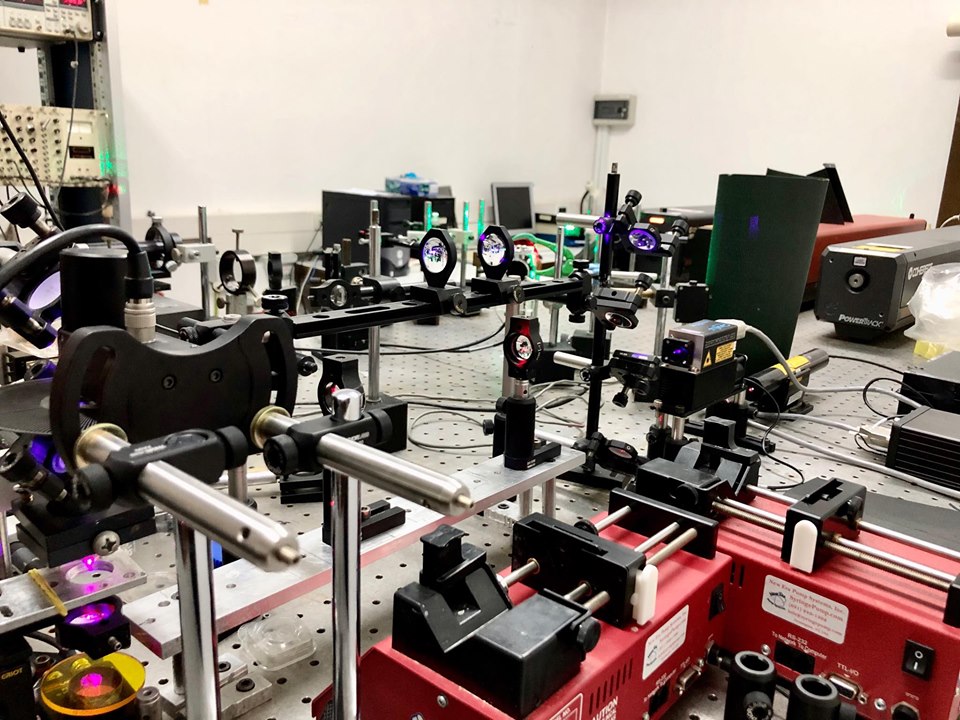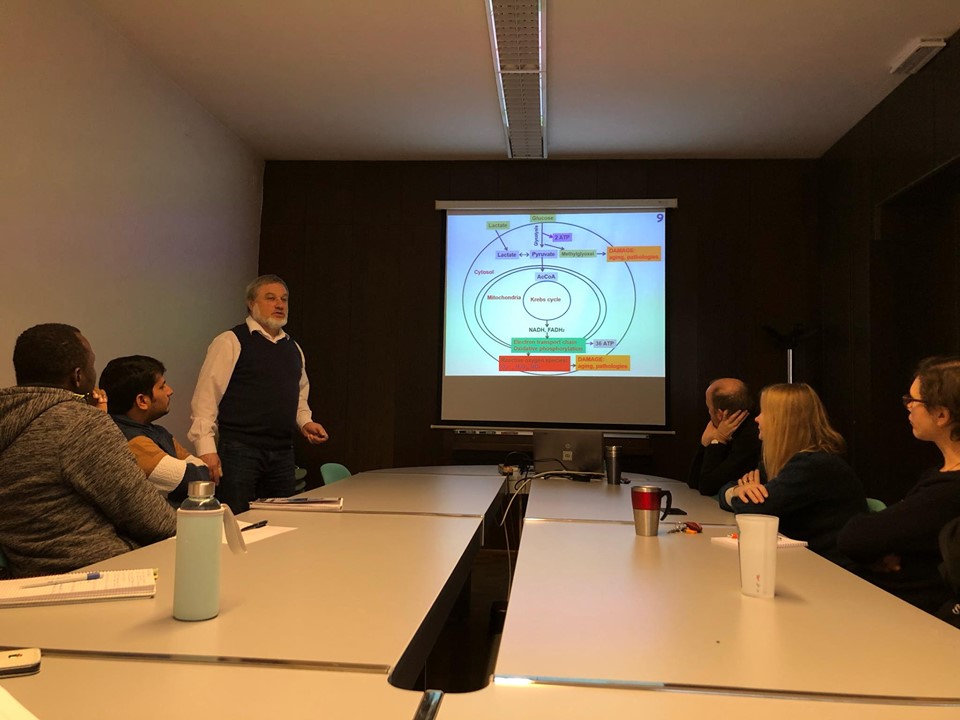Short report on Prof. Volodymyr Lushchak’s VISIT TO THE UNIVERSITY OF NOVA GORICA (UNG, http://www.ung.si/en/), Slovenia.
My visit was mainly focused on the LABORATORY OF ENVIRONMENTAL AND LIFE SCIENCES (LELS, http://www.ung.si/en/research/laboratory-for-environmental-and-life-sciences/staff/) from 10 to 19 January, 2020. The flight of Austrian Airlines from Lviv via Vienna to Venice was late due to which I arrived to Hotel Lipa in Šempeter about middle of night.
Next morning Saturday, January 11, meeting with Professor Mladen Franko (vice-rector of UNG, head of LELS) started at 9.00 A.M. was carried out for two hours in campus in Rožna Dolina and continued by sightseeing in Brda. On Monday, January 13, Mrs. Hanna Budasheva (originated from Ukraine, Donetsk, Vinnytsia) transferred me to UNG campus in Rožna Dolina. Meetings with Nadja Lovec Santanielo (secrertary of the dept) and Mrs. Sabina Zelinšček (Head of International office) helped me to arrange formalities regarding the visit and discuss some international exchange programs. Afternoon I met with Prof. Dorota Korte and PhD student Hanna Budasheva to discuss new laser-based techniques for material characterization (Foto on the left).
On Tuesday, January 14, I met with Dr. Iain White, who studied and graduated from Manchester University (UK) as chemical analyst. He studied air pollution in London by modern and highly sensitive techniques of HPLC in combination with mass spectrometry. After moving to Slovenia at UNG have teaches several courses on analytic chemistry and develops facilities to analyze violate compounds in air and vine products. Afternoon with Professor Mladen Franko (Head of LELS) we further detailed future collaboration in education and science and our joint Erasmus+ project application. It was decided that bachelor level will not be included in the project in order to stimulate our collaboration in scientific directions in the fields of chemical analysis and biomedical diagnostics due to which co-operation was planned to be strengthened at the level of master students and tutorial staff.
On Wednesday, January 15, most details on collaboration were clarified at further long discussion with Professor Franko and afternoon I gave 45 min a seminar on the results of our last experiment in the frames of our joint grant on collaboration with Professor Olga Garaschuk (Tubingen University, Germany) “Healthy brain aging and caloric restriction: interplay between free radical and energetic processes” which followed 30 min discussion (Foto on the left). Finally, this working day was finished by excellent discussion with Professor Ario de Marco on possible future scientific collaboration in the fields of nanobodies, phage display camel naïve VH, cancer diagnostics and treatment of different conditions.
Thursday, January 16, begined with interesting discussion with Professor Martina Bergant Marušič (Director of PhD course on Molecular Genetics and Biotechnology) who spent as postdoc several years in Tumour Virology Laboratory of International Centre for Genetic Engineering and Biotechnology, Trieste, Italy, and continues collaboration with this internationally well recognized scientific body. We discussed future scientific collaboration in the fields of virology and especially on environmental toxicology using different cell lines, and of course on student and staff exchange within Molecular Genetics and Biotechnology study program. The discussion was interesting in part, due to interests of Ukraine to establish collaboration with International Centre for Genetic Engineering and Biotechnology, Trieste, initiated by the exchange of opinions between the staff of the laboratory and Ministry of Education and Science of Ukraine (vice-minister Dr. Yuriy Polyukhovych). Afternoon we travelled with Professor Dorota Korte about 40 km to Vipava UNG campus where long interesting discussion with Professor Branka Mozetič Vodopivec (Dean of faculty of Viticulture and enology) and Professor Melita Sternad Lemut (Head of Wine research center) took place (http://www.ung.si/en/research/wine-research-centre/about%20WRC/). We discussed potential scientific collaboration and exchange by students and staff during visits to the laboratories. Main interests of these teams are focused within Analyses of the quality parameters of various plant samples, Optimization of viticulture techniques in accordance with grape and wine quality, Optimisation of winemaking technologies in correlation with wine composition and wine sensory characteristics, Determination of cultivar and wine style profiles, Metabolomics of grapes and yeasts, Microbiology of vines, grapes, fruits and wines, and Molecular biology of yeasts. Such directions may be important for Ukraine due to climate warming and potential intensification in Ukraine growing of grapes and vine production.
Last working day, January 17, we travelled with Professor Ario de Marco to UNG campus in Ajdovščina where I had a meeting with Professor Gvido Bratina (Vice-rector for science and arts and head of material science laboratory). Good tour at physical dept disclosed new potential fields for collaboration in the fields of astronomy (they have two own telescopes and are members of huge international consortium to use telescope in Latine America). High class scanning electronic microscopes of the dept may be also used for biological applications. Working programme was finished by the discussion with Professor Tanja Peric on potential collaboration in the field of animal sciences. Joint interests may be in the field of increase of adaptive potential of animals by different approaches. Finally, we had excellent closing meeting with the LELS staff with a glass of perfect local home-made vine.
This visit opens really new perspectives for collaboration between our university and UNG in the fields of biology, chemistry, physics, and mathematics. Especial interests are to humanistic sciences between our two slavic nations.
To the end, both parties have agreed that our collaboration in the frames of prepared joint application for Erasmus+ project must be extended by additional sources for mutual interests of both parties.


